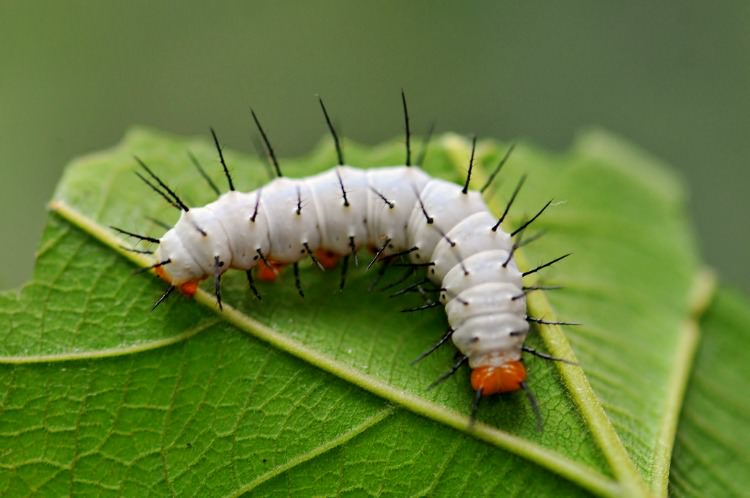
Writer, philosopher, and lecturer Joseph Campbell once famously joked that “a vegetarian is just a person who can’t hear a carrot scream.”
Campbell, who died in 1987, will never know how close to the truth he really was!
Research from the University of Missouri-Columbia has found via audio and chemical analysis that plants hear and actually respond to the sound of caterpillars munching their leaves. Even more shocking, these same plants react to the munching sounds with built-in, biological defense mechanisms.
Heidi Appel, senior research scientist with the Division of Plant Sciences at Missouri-Columbia said, “We found that feeding vibrations signal changes in the plant cells’ metabolism, creating more defensive chemicals that can repel attacks from caterpillars.”
The researchers tested various sounds like gentle wind and the buzzing of nearby insects and compared this with the sound of caterpillars chewing leaves. The surprising conclusion is that plants do indeed distinguish threatening from nonthreatening sounds and defend themselves accordingly by producing more mustard oils, which repel many species of caterpillar.
While this research likely won’t convince those that eschew meat that their way of eating is not really any sort of moral high ground (it certainly bequeaths no health benefit), it might give a few reason to pause.
At least meat generally tends to be already dead before you eat it. When you eat a salad, the poor plants are still alive and know exactly the torture that is being inflicted upon them!
Bring on the bacon!
Sources and More Information
Most Vegetarians Return to Eating Meat
Vegetarians Have More Tooth Decay
Sorry Vegetarians, Plants Know When They are Being Eaten Too
Plants Know When They are Being Eaten








And the plants (such as the (NM pines trees) emit sounds? Or chems? That they are stressed and the bugs hear it and zero in for the kill ( pine bark beetles have devastated NM forests during this drought )
Yup amazing
Funny, and interesting!
Saw a special on this on the discovery channel. They can give off a scent to bring other bugs or living things to come and it the ones bothering them. NATURE IS AWESOME!
I guess that just leaves air
THANK YOU! I’ve been saying this for years! I always remember an episode of the Simpsons- Lisa falls in love with a hippie boy who says, “I’m a level 3 vegan. I don’t eat anything that casts a shadow.” Good luck with that!
Honestly, I wish this was true since obviously the plants aren’t doing a great job in repelling beetles and moth larvae from eating them.
That’s what my son said … when I told him he said flatly, “Well, it’s not working very well is it?!!”
OK you have your annuals, biennials, and perennials. Perennials have roots that go very deep, and bring nutrients to the surface in the form of leaves, and plant mater. In the natural world perennials, and grazing animals feed the topsoil, which in turn provides the nutrients annuals, and perennials need to fend off bugs. Excluding perennials, and grazing animals from a garden disturbs the natural cycling of nutrients.
When the bugs don’t bother your plants, you know your feeding you soil correctly That is what organic gardening is all about.
But we don’t generally eat the leaves while the plant is STILL in the ground – therefore I presume since the ‘life connection’ is cut off once the lettuce has been picked then we are generally not getting those reactions – research needed to see if that is true – I can understand the plant reacting when it is still a fully functioning organism.
hah ! maybe we need a “dead 3 days” notice on the supermarket shelves instead of “freshly picked” ???
LOL! Of course, my closing statements were tongue in cheek and meant to be ridiculous 🙂
In lieu of this information maybe we all (veggies and omnivores alike) can approach our food with the knowledge that everything has consciousness, everything is a living being, everything feels pain and suffering, everything deserves respect and reciprocity for the sacrifice of it’s life so that the living can eat to survive and be nourished. There is no getting around it – living beings need to eat one another in order to survive. One must die in order for another to live. That is the reality of life on earth. It’s about time we stopped denying this and started treating all beings that we consume with some respect for their life sacrifice.
This might be an opportunity to engineer veggies safely. Have “stressed” and “non-stressed” varieties, the former being a bit more spicy.
@TZ HA! 😀